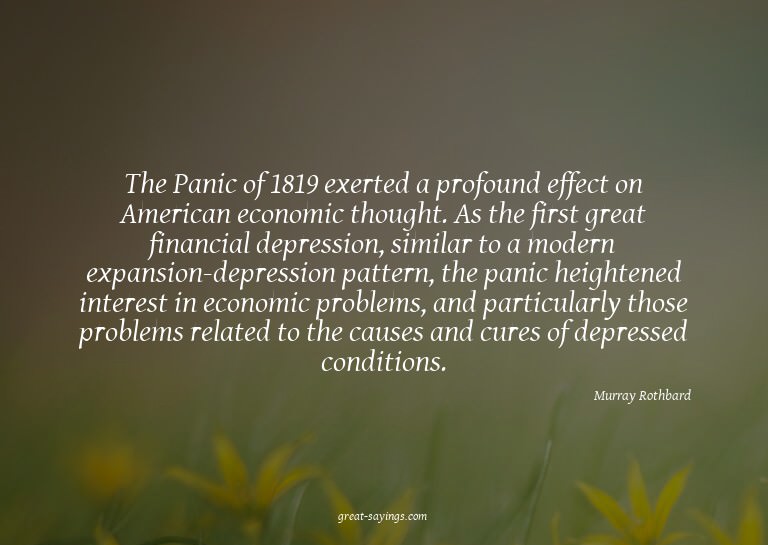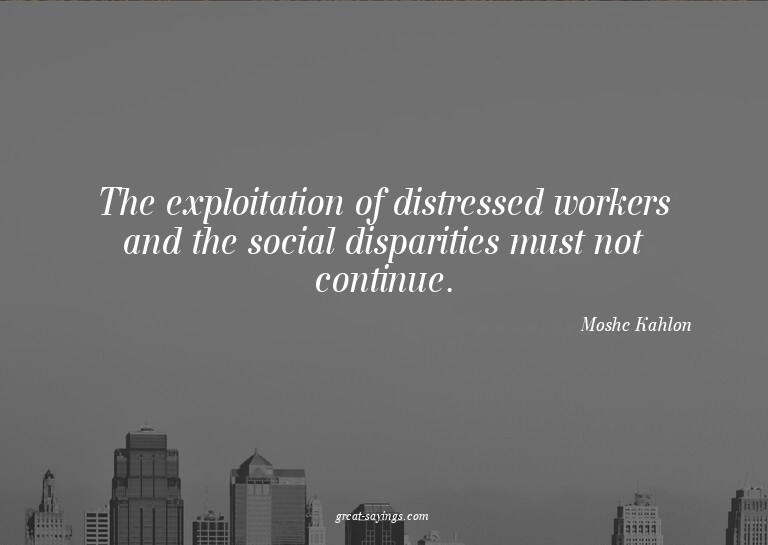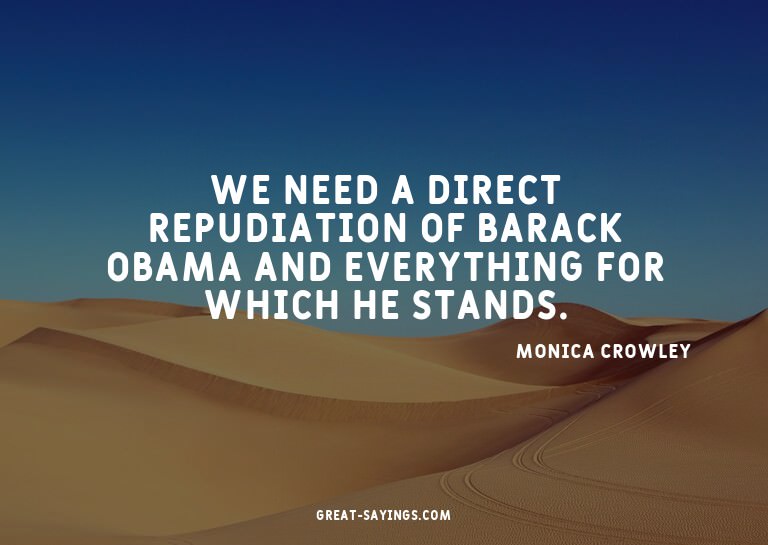Words matter. These are the best Murray Rothbard Quotes, and they’re great for sharing with your friends.

Declines in specific industries can never ignite a general depression. Shifts in data will cause increases in activity in one field, declines in another.
It is important to realize that gold and silver are international commodities and that, therefore, when not prohibited by government decree, foreign coins are perfectly capable of serving as standard moneys.
Since the State necessarily lives by the compulsory confiscation of private capital, and since its expansion necessarily involves ever-greater incursions on private individuals and private enterprise, we must assert that the State is profoundly and inherently anticapitalist.
The contemporary political scientist believes that he can avoid the necessity of moral judgments and that he can help frame public policy without committing himself to any ethical position.
Early economic theory was rooted in the Italian, French, and Spanish traditions, which were subjectivist oriented. Then it shifted onto the terrible path by Smith and Ricardo and the British classical tradition, which is ‘objectivist’ – values are in inherent in production.
If taxes and government spending are both slashed, then the salutary result will be to lower the parasitic burden of government taxes and spending upon the productive activities of the private sector.
In order to conquer the world of economics with his new theory, it was critical for Keynes to destroy his rivals within Cambridge itself. In his mind, he who controlled Cambridge controlled the world.
If you wish to know how libertarians regard the State and any of its acts, simply think of the State as a criminal band, and all of the libertarian attitudes will logically fall into place.
It is in war that the State really comes into its own: swelling in power, in number, in pride, in absolute dominion over the economy and the society.
In the panic of 1819, the protectionists stressed the lack of consumer markets abroad and the necessity for building up a market at home. The inflationists, on the other hand, stressed the shortage of money capital available to manufacturers as a cause of the crisis.
Now judicial review, beloved by conservatives, can, of course, fulfill the excellent function of declaring government interventions and tyrannies unconstitutional. But it can also validate and legitimize the government in the eyes of the people by declaring these actions valid and constitutional.
The great fact of individual difference and variability (that is, inequality) is evident from the long record of human experience: hence, the general recognition of the antihuman nature of a world of coerced uniformity.
The proper governmental policy in a depression is strict laissez-faire, including stringent budget slashing, and coupled perhaps with positive encouragement for credit contraction.
The State thrives on war – unless, of course, it is defeated and crushed – expands on it, glories in it.
The picture of the free market is necessarily one of harmony and mutual benefit; the picture of State intervention is one of caste conflict, coercion, and exploitation.
There is one good thing about Marx: he was not a Keynesian.
Keynes was scarcely a ‘revolutionary’ in any real sense. He possessed the tactical wit to dress up ancient statist and inflationist fallacies with modern, pseudoscientific jargon, making them appear to be the latest findings of economic science.
An attempt by the Mongols to introduce paper money in Persia in the twelfth and thirteenth centuries flopped because no one would accept it. The public had no confidence in the paper money despite the awesomely coercive decrees that always marked Mongol rule.
The threat of gold redeemability imposes a constant check and limit on inflationary issues of government paper. If the government can remove the threat, it can expand and inflate without cease. And so it begins to emit propaganda, trying to persuade the public not to use gold coins in their daily lives.
Reagonomics – a blend of monetarism and fiscal Keynesianism swathed in classical liberal and supply-side rhetoric – is in no way going to solve the problem of inflationary depression or of the business cycle.
In order to continue in office, any government (not simply a ‘democratic’ government) must have the support of the majority of its subjects. This support, it must be noted, need not be active enthusiasm; it may well be passive resignation as if to an inevitable law of nature.
We have gotten to the point where everything the government does is counterproductive; the conclusion, of course, is that the government should do nothing at all, that is, should retire quickly from the monetary and economic scene and allow freedom and free markets to work.
In the market, the fittest are those most able to serve the consumers; in government, the fittest are those most adept at wielding coercion and/or those most adroit at making demagogic appeals to the voting public.
Out of the bitter experiences of the panic of 1819 emerged the beginnings of the Jacksonian movement, dedicated to hard money, the eradication of fractional reserve banking in general, and of the Bank of the United States in particular.
The majority must be persuaded by ideology that their government is good, wise and, at least, inevitable, and certainly better than other conceivable alternatives. Promoting this ideology among the people is the vital social task of the ‘intellectuals.’
While other individuals or institutions obtain their income by production of goods and services and by the peaceful and voluntary sale of these goods and services to others, the State obtains its revenue by the use of compulsion; that is, by the use and the threat of the jailhouse and the bayonet.
The Jacksonians were libertarians, plain and simple. Their program and ideology were libertarian; they strongly favored free enterprise and free markets, but they just as strongly opposed special subsidies and monopoly privileges conveyed by government to business or to any other group.
Libertarians regard the state as the Supreme, the eternal, the best organized aggressor against the persons and property of the mass of the public. All states everywhere, whether democratic, dictatorial, or monarchical, whether red, white, blue or brown.
Ultimately, there is no entity called ‘government’; there are only people forming themselves into groups called ‘governments’ and acting in a ‘governmental’ manner.
Positivism eliminates any kind of natural law principle – for example, that there are economic laws which can be transgressed only at your peril. With positivism, there is a tendency to leap into ad hoc economic theory.
The Jacksonians were not monetary nationalists; specie was specie, and they saw no reason that foreign gold or silver coins should not circulate with the same full privileges as American-minted coins.

The Panic of 1819 exerted a profound effect on American economic thought. As the first great financial depression, similar to a modern expansion-depression pattern, the panic heightened interest in economic problems, and particularly those problems related to the causes and cures of depressed conditions.
In a sense, the market, by expecting a fall in prices, discounts that fall and makes it happen right away instead of later. Expectations speed up future price reactions.
The avoidance of explicit ethical judgments leads political scientists to one overriding implicit value judgment – that in favor of the political status quo as it happens to prevail in any given society.
The successful entrepreneurs on the free market will be the ones most adept at anticipating future business conditions. Yet, the forecasting can never be perfect, and entrepreneurs will continue to differ in the success of their judgments. If this were not so, no profits or losses would ever be made in business.
Investment bankers do much of their business underwriting government bonds, in the United States and abroad. Therefore, they have a vested interest in promoting deficits and in forcing taxpayers to redeem government debt.
The most famous and one of the most thoroughgoing opponents of bank credit was Thomas Jefferson. Jefferson reacted to the panic of 1819 as a confirmation of his pessimistic views on banks.
The natural law is, in essence, a profoundly ‘radical’ ethic, for it holds the existing status quo, which might grossly violate natural law, up to the unsparing and unyielding light of reason.
Fractional reserve banks are sitting ducks and are always subject to contraction. When the banks’ state of inherent bankruptcy is discovered, for example, people will tend to cash in their deposits, and the contractionary, deflationary pressure could be severe.
On the market, all is harmony. But as soon as intervention appears and is established, conflict is created, for each may participate in a scramble to be a net gainer rather than a net loser – to be part of the invading team instead of one of the victims.
Of all the numerous forms that governments have taken over the centuries, of all the concepts and institutions that have been tried, none has succeeded in keeping the State in check. The problem of the State is evidently as far from solution as ever.
War has generally had grave and fateful consequences for the American monetary and financial system. We have seen that the Revolutionary War occasioned a mass of depreciated fiat paper, worthless Continentals, a huge public debt, and the beginnings of central banking in the Bank of North America.
Pages: 1 2












